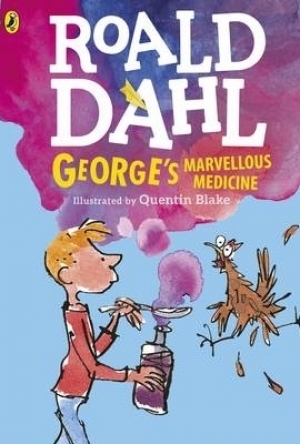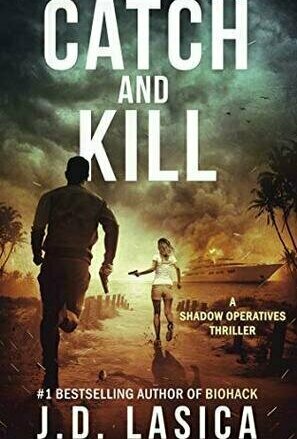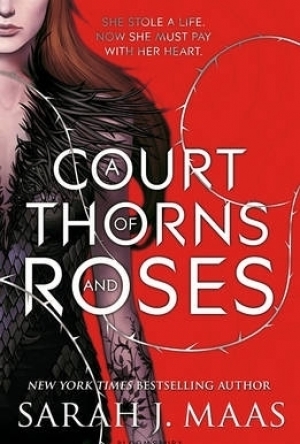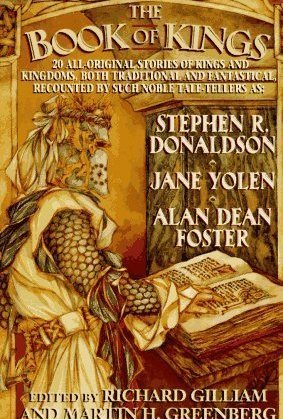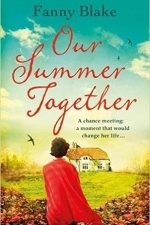Search
Search results
Kayleigh (12 KP) rated George's Marvellous Medicine in Books
Jan 2, 2019
This was always my favourite Roald Dahl book, and I’ve re-remembered why now! It’s deliciously naughty, and everybody can imagine gleefully mixing up a concoction to make a disliked person yell “Oweeeee!”
A couple of years ago, I was an au pair in France for three children: a boy aged 9 and two girls, aged 5 years and 9 months old, respectively. I remember I had a little bit of trouble getting the children to settle down and listen to me reading a book, and alas, with the girls, I wasn’t actually successful. They were really intelligent kids, speaking French and German, with English as their third language. With the boy though – I’ll call him L, as I haven’t asked permission to use his name – he ended up loving this book. While there were some words I thought it necessary to replace so that he’d understand, he got really into it, and every day was asking me to read him another chapter.
It’s all slightly cheeky, and very funny. There have certainly been people over the years I’d love to make a magical medicine for, and I remember L getting more and more excited as he firstly wondered what was going to happen to Grandma, and then was fascinated by all the effects the medicine had.
There’s a real childish logic to how George goes about concocting his marvellous medicine, which I know appeals to many kids. She’s got rotten teeth, so he’ll put toothpaste in, and if that doesn’t work, he’ll paint them red with nail varnish. Genius! Here’s one of his ideas:
<blockquote>“The first one he took down was a large box of SUPERWHITE FOR AUTOMATIC WASHING-MACHINES. DIRT, it said, WILL DISAPPEAR LIKE MAGIC. George didn’t know whether Grandma was automatic or not, but she was certainly a dirty old woman.”</blockquote>
Quentin Blake’s illustrations really add to the story, particularly in the second half of the book, when the child reading it can see just how big the characters are getting.
The imagination is powerful, but even more so when mixed with these visual aids – see the picture to the right. I think the great thing about the detail of these illustrations – particularly Grandma’s face – is that you can project feelings onto them. In the context of the story it’s really easy to see her as a disgusting “old bird”, but if it was slightly different, judging from the front page you could see her as slightly mischievous too. Or is that just me?! However, I’m digressing. For an adult reading the book, the words dance off the tongue just like George, imagining he’s casting a spell over his cauldron. I found that L’s attention was thoroughly captured and he loved hearing the ‘special effects’ of all the whooshes and woweeees. There’s also the magical and triumphant aspects – he’s somehow created this cool concoction that has meant he’s got his own back on his grouchy old Grandma and helped out his dad by enlarging all the animals. I think kids love those feeling of pride and revenge they get on George’s behalf, while at the same time getting vivid images in their head that they’ll remember for a long time – I know I did!
This review is also on my <a href="http://awowords.wordpress.com">blog</a>; - if you liked it, please check it out!
A couple of years ago, I was an au pair in France for three children: a boy aged 9 and two girls, aged 5 years and 9 months old, respectively. I remember I had a little bit of trouble getting the children to settle down and listen to me reading a book, and alas, with the girls, I wasn’t actually successful. They were really intelligent kids, speaking French and German, with English as their third language. With the boy though – I’ll call him L, as I haven’t asked permission to use his name – he ended up loving this book. While there were some words I thought it necessary to replace so that he’d understand, he got really into it, and every day was asking me to read him another chapter.
It’s all slightly cheeky, and very funny. There have certainly been people over the years I’d love to make a magical medicine for, and I remember L getting more and more excited as he firstly wondered what was going to happen to Grandma, and then was fascinated by all the effects the medicine had.
There’s a real childish logic to how George goes about concocting his marvellous medicine, which I know appeals to many kids. She’s got rotten teeth, so he’ll put toothpaste in, and if that doesn’t work, he’ll paint them red with nail varnish. Genius! Here’s one of his ideas:
<blockquote>“The first one he took down was a large box of SUPERWHITE FOR AUTOMATIC WASHING-MACHINES. DIRT, it said, WILL DISAPPEAR LIKE MAGIC. George didn’t know whether Grandma was automatic or not, but she was certainly a dirty old woman.”</blockquote>
Quentin Blake’s illustrations really add to the story, particularly in the second half of the book, when the child reading it can see just how big the characters are getting.
The imagination is powerful, but even more so when mixed with these visual aids – see the picture to the right. I think the great thing about the detail of these illustrations – particularly Grandma’s face – is that you can project feelings onto them. In the context of the story it’s really easy to see her as a disgusting “old bird”, but if it was slightly different, judging from the front page you could see her as slightly mischievous too. Or is that just me?! However, I’m digressing. For an adult reading the book, the words dance off the tongue just like George, imagining he’s casting a spell over his cauldron. I found that L’s attention was thoroughly captured and he loved hearing the ‘special effects’ of all the whooshes and woweeees. There’s also the magical and triumphant aspects – he’s somehow created this cool concoction that has meant he’s got his own back on his grouchy old Grandma and helped out his dad by enlarging all the animals. I think kids love those feeling of pride and revenge they get on George’s behalf, while at the same time getting vivid images in their head that they’ll remember for a long time – I know I did!
This review is also on my <a href="http://awowords.wordpress.com">blog</a>; - if you liked it, please check it out!
Night Reader Reviews (683 KP) rated Catch and Kill : Shadow Operatives Thriller 2 in Books
Jan 9, 2020
Honest Review for Free Copy of Book
Catch and Kill – Shadow Operatives Thriller 2 by J. D. Lasica came recommended to me because of people comparing it to works by Michael Crichton. I am pleased to confirm that all the people comparing the two authors were correct. J. D. Lasica also informed me that I did not need to read the first book to understand this one and that turned out to be true as well. There are not many books that are part of a series that can also be read as a stand-alone. On that same note, this book was so good that I want to go back and read the first book as well.
Action packed right from the start, A woman by the name of Kaden is attacked in an attempted kidnapping at a celebration where she was originally a person of honor. After returning home and finding that it has also been broken into Kaden receives messages from a mysterious man called Bo. Bo wants her help in investigating The Disappearance, and reluctantly Kaden agrees. At the same time on Samana City, a place called Fantasy Live is doing its soft open, and Alex, a reporter for the Axom is doing an undercover story on it.
Fantasy Live uses augmented reality to bring the patron’s deepest fantasies to life, within reason. Alex finds out some disturbing information about Samana City and Fantasy Live and sends word back to Axom. As it turns out Kaden and Bo’s investigation is already leading them to Fantasy Live and they team up with some other Axom employees to infiltrate the island. Things do not go very smooth for them on Samana City. Kaden must trust in her teammates, both familiar and new if they hope to escape. In the process, they are going to try to bring the girls from The Disappearance home and save the world from a surprise bio-warfare that no one is prepared for, but the creator of Fantasy Live is ready to kill to make sure no one interferes.
What I liked best was that the plot line was well thought out. The plans of Incognito and Lucid were explained in a way that made them completely believable. While it does take place in the future the technology used is not that far from what we use every day now. Naturally, I did not like the idea of Lucid and Incognito being missing at the end. However, with this being only the second book in the series I have faith that they will be found. I still do not completely understand how The Disappearance was able to happen without anyone noticing something before it was too late.
Target readers for this book are adults. This is due to the content and topics surrounding sex, forced surrogacy, and human trafficking. People who enjoy action-packed thrillers in a slightly futuristic setting will enjoy this book. I rate this book a 4 out of 4 because I got exactly what I was promised with this book. Each character clearly has their own personality that plays into how they respond to the situations presented. Everything was so believable that it was almost scary to think about how these events could actually happen.
https://www.facebook.com/nightreaderreviews
Action packed right from the start, A woman by the name of Kaden is attacked in an attempted kidnapping at a celebration where she was originally a person of honor. After returning home and finding that it has also been broken into Kaden receives messages from a mysterious man called Bo. Bo wants her help in investigating The Disappearance, and reluctantly Kaden agrees. At the same time on Samana City, a place called Fantasy Live is doing its soft open, and Alex, a reporter for the Axom is doing an undercover story on it.
Fantasy Live uses augmented reality to bring the patron’s deepest fantasies to life, within reason. Alex finds out some disturbing information about Samana City and Fantasy Live and sends word back to Axom. As it turns out Kaden and Bo’s investigation is already leading them to Fantasy Live and they team up with some other Axom employees to infiltrate the island. Things do not go very smooth for them on Samana City. Kaden must trust in her teammates, both familiar and new if they hope to escape. In the process, they are going to try to bring the girls from The Disappearance home and save the world from a surprise bio-warfare that no one is prepared for, but the creator of Fantasy Live is ready to kill to make sure no one interferes.
What I liked best was that the plot line was well thought out. The plans of Incognito and Lucid were explained in a way that made them completely believable. While it does take place in the future the technology used is not that far from what we use every day now. Naturally, I did not like the idea of Lucid and Incognito being missing at the end. However, with this being only the second book in the series I have faith that they will be found. I still do not completely understand how The Disappearance was able to happen without anyone noticing something before it was too late.
Target readers for this book are adults. This is due to the content and topics surrounding sex, forced surrogacy, and human trafficking. People who enjoy action-packed thrillers in a slightly futuristic setting will enjoy this book. I rate this book a 4 out of 4 because I got exactly what I was promised with this book. Each character clearly has their own personality that plays into how they respond to the situations presented. Everything was so believable that it was almost scary to think about how these events could actually happen.
https://www.facebook.com/nightreaderreviews
Ivana A. | Diary of Difference (1171 KP) rated A Court of Thorns and Roses in Books
Feb 3, 2020
<a href="https://diaryofdifference.com/">Blog</a>; | <a href="https://www.facebook.com/diaryofdifference/">Facebook</a>; | <a href="https://twitter.com/DiaryDifference">Twitter</a>; | <a href="https://www.instagram.com/diaryofdifference/">Instagram</a>; | <a href="https://www.pinterest.co.uk/diaryofdifference/pins/">Pinterest</a>;
#1 <a href="https://www.goodreads.com/review/show/2714338975">A Court of Thorns and Roses</a> - ★★★★★
<img src="https://gipostcards.files.wordpress.com/2019/02/new-blog-banner-6.png"/>;
Here I am people! I can hang out with the cool kids now that I’ve read the book. It felt like I was hiding in a cave until now, refusing to read Sarah J. Maas, thinking the hype is too forced. But to be honest, this book surprised me a lot. <b>I enjoyed it with all my heart, and even though I wouldn’t cry and scream over it, I am very pleased that I read it, and I just can’t wait to read the rest of the series.</b>
A Court of Thorns And Roses is a story about a young lady, Feyre, who is a huntress and goes out in the woods to hunt food. The more she hunts, the better her family can eat. And when one day she kills a wolf, she learns the hard way that killing a magical creature has its price…
She is imprisoned in an enchanted court and she is free to walk around, but not allowed to escape. The creature that captures her is a beast with fighting skills, with a mask on his face and piercing eyes that make her heart beat fast.
As Feyre starts to grow warmer about Tamlin, danger lies nearby and secrets are all over the place, and Tamlin and his kind might not be who she thought they were.
Fighting to break a curse that might make her lose her true love forever, Feyre must fight with all her forces, but she is just a weak human in this faerie world. Will she be able to make it?
I have to start with mentioning that the beginning was extremely slow and I was almost on the point of asking all of these people why they love this book so much. But once the plot started revealing itself, and a few twists happened straight away, I was glued to my sofa, reading page after page.
It gives us a slight resemblance of the Beauty and the Beast, even though the plot is quite different. There is a powerful beast who locks the girl, and they fall in love, but there is so much more twists, adventures and danger that I can’t compare them beyond that.
I loved Feyre, for the fierce woman she is. I loved the fight she had in herself, despite being a tiny human in a world of powerful magical creatures. I loved the fact that she would stand up for what she believes in, no matter the consequences, though sometimes, quite recklessly done.
I loved Tamlin, and his warmth despite his cold appearance. The way he cared for Feyre was so heartwarming and cute. The love they feel for each other, and those scenes that made me cry – I will cherish that!
I am not sure how I felt about the ending – it was a bit forced, and too soppy, but it opened a space for another book, which I will be reading soon.
<b><i>A wonderful magical tale, a fierce woman, a fiercer love, and even fiercer danger, this one won’t let you sleep at night, and it will haunt you to find answers. A true masterpiece!</i></b>
<a href="https://diaryofdifference.com/">Blog</a>; | <a href="https://www.facebook.com/diaryofdifference/">Facebook</a>; | <a href="https://twitter.com/DiaryDifference">Twitter</a>; | <a href="https://www.instagram.com/diaryofdifference/">Instagram</a>; | <a href="https://www.pinterest.co.uk/diaryofdifference/pins/">Pinterest</a>;
#1 <a href="https://www.goodreads.com/review/show/2714338975">A Court of Thorns and Roses</a> - ★★★★★
<img src="https://gipostcards.files.wordpress.com/2019/02/new-blog-banner-6.png"/>;
Here I am people! I can hang out with the cool kids now that I’ve read the book. It felt like I was hiding in a cave until now, refusing to read Sarah J. Maas, thinking the hype is too forced. But to be honest, this book surprised me a lot. <b>I enjoyed it with all my heart, and even though I wouldn’t cry and scream over it, I am very pleased that I read it, and I just can’t wait to read the rest of the series.</b>
A Court of Thorns And Roses is a story about a young lady, Feyre, who is a huntress and goes out in the woods to hunt food. The more she hunts, the better her family can eat. And when one day she kills a wolf, she learns the hard way that killing a magical creature has its price…
She is imprisoned in an enchanted court and she is free to walk around, but not allowed to escape. The creature that captures her is a beast with fighting skills, with a mask on his face and piercing eyes that make her heart beat fast.
As Feyre starts to grow warmer about Tamlin, danger lies nearby and secrets are all over the place, and Tamlin and his kind might not be who she thought they were.
Fighting to break a curse that might make her lose her true love forever, Feyre must fight with all her forces, but she is just a weak human in this faerie world. Will she be able to make it?
I have to start with mentioning that the beginning was extremely slow and I was almost on the point of asking all of these people why they love this book so much. But once the plot started revealing itself, and a few twists happened straight away, I was glued to my sofa, reading page after page.
It gives us a slight resemblance of the Beauty and the Beast, even though the plot is quite different. There is a powerful beast who locks the girl, and they fall in love, but there is so much more twists, adventures and danger that I can’t compare them beyond that.
I loved Feyre, for the fierce woman she is. I loved the fight she had in herself, despite being a tiny human in a world of powerful magical creatures. I loved the fact that she would stand up for what she believes in, no matter the consequences, though sometimes, quite recklessly done.
I loved Tamlin, and his warmth despite his cold appearance. The way he cared for Feyre was so heartwarming and cute. The love they feel for each other, and those scenes that made me cry – I will cherish that!
I am not sure how I felt about the ending – it was a bit forced, and too soppy, but it opened a space for another book, which I will be reading soon.
<b><i>A wonderful magical tale, a fierce woman, a fiercer love, and even fiercer danger, this one won’t let you sleep at night, and it will haunt you to find answers. A true masterpiece!</i></b>
<a href="https://diaryofdifference.com/">Blog</a>; | <a href="https://www.facebook.com/diaryofdifference/">Facebook</a>; | <a href="https://twitter.com/DiaryDifference">Twitter</a>; | <a href="https://www.instagram.com/diaryofdifference/">Instagram</a>; | <a href="https://www.pinterest.co.uk/diaryofdifference/pins/">Pinterest</a>;
BookInspector (124 KP) rated Puzzle Girl in Books
Sep 24, 2020
The protagonist in this book is Cassy, a very successful accounts director in the social media firm. I loved her and I hated her decisions at the same time. I admired her cleverness and organizational skills (She has a list for everything!), she is a strong and independent woman who has an incredibly funny gay best friend Dan. But no, she needs to mope about her trashy ex-boyfriend and get herself into the most bizarre situations ever (which were really funny, to be honest). I am absolutely jealous to Cassy that she has Dan, it is an amazing friendship they got there. 🙂
The narrative was incredibly funny and got me giggling and saying “Oh NO!” out loud many times. It is just unbelievable how unlucky one person can be! So kudos to Cassy for surviving all that mess, which she brought on herself. 😀 This book is full of twists and unexpected turns, but I knew who the puzzle man was way before things started being obvious. Nevertheless, I kept reading to see what another silly situation Cassy is going to get into, also, I wanted to see whether I was right with my guess. (Just to clarify, I am always wrong with my guesses, ALWAYS! Except for this time.) The narrative is told from Cassy’s perspective and it was fully sufficient for me. I really liked the way the protagonist opened up throughout the pages. She had some deep realizations about her life, and the mistakes she made in her relationships.
I really loved the writing style of this book, it is light-hearted and very enjoyable to read. I loved the setting of this novel as well, books set in London feel very relatable and close to my heart. I really liked the structure of the chapters, they are not very long and filled with lists and text messages which made the whole reading experience more playful and entertaining. The ending was very well deserved and rounded the story very nicely.
To conclude, it is a very funny and enjoyable novel, filled with very well developed, diverse characters and great adventures (kind of). I think it would be a great romantic comedy film, and I hope to see it one day. 🙂 I really enjoyed this novel, and if you are looking for something to lighten up your gloomy evenings, this is definitely a book to go for. Do give this book a go and I hope you will enjoy as much as I did.
The narrative was incredibly funny and got me giggling and saying “Oh NO!” out loud many times. It is just unbelievable how unlucky one person can be! So kudos to Cassy for surviving all that mess, which she brought on herself. 😀 This book is full of twists and unexpected turns, but I knew who the puzzle man was way before things started being obvious. Nevertheless, I kept reading to see what another silly situation Cassy is going to get into, also, I wanted to see whether I was right with my guess. (Just to clarify, I am always wrong with my guesses, ALWAYS! Except for this time.) The narrative is told from Cassy’s perspective and it was fully sufficient for me. I really liked the way the protagonist opened up throughout the pages. She had some deep realizations about her life, and the mistakes she made in her relationships.
I really loved the writing style of this book, it is light-hearted and very enjoyable to read. I loved the setting of this novel as well, books set in London feel very relatable and close to my heart. I really liked the structure of the chapters, they are not very long and filled with lists and text messages which made the whole reading experience more playful and entertaining. The ending was very well deserved and rounded the story very nicely.
To conclude, it is a very funny and enjoyable novel, filled with very well developed, diverse characters and great adventures (kind of). I think it would be a great romantic comedy film, and I hope to see it one day. 🙂 I really enjoyed this novel, and if you are looking for something to lighten up your gloomy evenings, this is definitely a book to go for. Do give this book a go and I hope you will enjoy as much as I did.
Acanthea Grimscythe (300 KP) rated The House by the Cemetery in Books
Jan 31, 2019 (Updated Feb 2, 2019)
I have a love-hate relationship with The House by the Cemetery by John Everson, and it’s really tearing me apart. I absolutely enjoyed the story itself, but there’s a few issues, one of which is a huge red flag, that I simply can’t allow to go unspoken–and if other reviews are any clue, I’m not the only one that’s immensely bothered by it.
The story involves a witch that died in 1963, a haunted house, a haunted house attraction, and a lot of characters (too many to keep track of without a notebook, actually). Hired to repair the haunted house so that guests can safely walk through it, Mike Kostner spends much of his time drinking beer and talking with the girls, Katie and Emery. At the same time, Jeanie’s been hired on as a makeup artist for the upcoming attraction and drags her boyfriend, Bong, into it. Then there’s Jillie and Ted, paranormal investigators. And then there are three other groups of people to form more members of the cast, which I found to be extremely overwhelming.
At this point in my review, I usually talk about characters and their development, what I like about them, what I don’t, etc. In this case, I can’t really do that. The only character I managed to forge any sort of emotional connection with was Jeanie, and it’s mainly sympathetic. As for the rest of the roles played, I’m largely disappointed. Why? Because there’s a severe lack of sensitivity in this novel–which has been mentioned in several other reviews. There are four characters whose sole defining characteristic is either their race or their weight. There’s no depth given beyond that to them as an individual. The remarks dealing with weight are largely shaming and those dealing with race are stereotypical. And here’s where I’m going to take a moment to discuss the character Bong, which I feel is the most blatant insult to another race’s customs that I’ve seen in a long time.
Bong’s full name is Bong-soon Mon. Phonetically, that sounds a lot like “bong soon man.” It’s not overly obvious if you’re not familiar with Korean names, and Bong-soon is an actual name used in the drama Strong Woman Do Bong Soon. However, in this case, Everson shortens Bong-soon, which is actually the character’s name (whether it’s his first or last, I’m not sure), to Bong. Thus he makes it more of a laughing matter (really, it’s not funny), whether it’s intentional or unintentional. Usually I’m not sensitive to these types of material, but in this book the way it comes across is really bothersome and, like several other readers, I agree with the idea that this book desperately needs an edit for sensitivity. Please bear in mind that I read an arc of this book and so I’m not sure if any of these issues were addressed in the final publication.
EDIT: After speaking with the author, he explained to me that the reason he shortened the name as he did comes from personal experience with someone that had the same name, and what they went by. Everson also assured me it was not his intent to fat shame those characters. I really appreciate that he reached out to me, and feel it's important that my misconception be corrected, but not hidden.
Plotwise, I adored this book. I can’t go too much into detail without sharing spoilers, but I can say this: the Everson does have a talent for creating beautifully grisly, albeit somewhat repetitive, scenes. The bloodbath that takes place near the end of the book is a glorious gore-fest that I felt the rest of the story worked up to quite well, even if it crawled earlier on while Mike was working on the house. As for the setting, it’s well written. I liked the idea of a house next to a cemetery, and its easy to infer its age without being told: it’s too close to a turnpike to have been put there before the turnpike was built. I was, however, confused by the juxtaposition of a heavily wooded house and cemetery in close proximity to a city or town, as in my experience turnpikes usually don’t have exits between major locales. At least, not very many present-day ones do, as most of them have been converted to, or created as, a controlled-access highway, where intersecting roads tend to cross over or under so that they do not impede traffic. That said, it strikes me as weird that a single house and cemetery would have an exit from a turnpike.
So I decided to google cemeteries and turnpikes, and what did I find? Bachelor’s Grove Cemetery is an actual haunted locale found in the suburbs of Chicago. And yes, it actually is that close to a turnpike! If you like to watch Ghost Adventures, the cemetery was featured in a 2012 episode. Also, the cemetery is extremely old. Even better? Many of the ghost stories referenced in the book are actual tales surrounding the cemetery. It’s actually pretty fascinating and I wouldn’t even have known about it were it not for Everson’s book.
Overall, I did enjoy reading this book. I loved the homage to horror movies of all types, including lesser known genres. I absolutely adored the way in which some of the characters were manipulated, too. Hence why I stated early in this review that I have a love-hate relationship with it. Because of the lack of sensitivity though, and the way I was made to feel as a reader because of it (I’m overweight, after all), I can’t give it more than three skulls.
I’d like to thank the publisher and NetGalley for providing me with a free copy of this book for review.
The story involves a witch that died in 1963, a haunted house, a haunted house attraction, and a lot of characters (too many to keep track of without a notebook, actually). Hired to repair the haunted house so that guests can safely walk through it, Mike Kostner spends much of his time drinking beer and talking with the girls, Katie and Emery. At the same time, Jeanie’s been hired on as a makeup artist for the upcoming attraction and drags her boyfriend, Bong, into it. Then there’s Jillie and Ted, paranormal investigators. And then there are three other groups of people to form more members of the cast, which I found to be extremely overwhelming.
At this point in my review, I usually talk about characters and their development, what I like about them, what I don’t, etc. In this case, I can’t really do that. The only character I managed to forge any sort of emotional connection with was Jeanie, and it’s mainly sympathetic. As for the rest of the roles played, I’m largely disappointed. Why? Because there’s a severe lack of sensitivity in this novel–which has been mentioned in several other reviews. There are four characters whose sole defining characteristic is either their race or their weight. There’s no depth given beyond that to them as an individual. The remarks dealing with weight are largely shaming and those dealing with race are stereotypical. And here’s where I’m going to take a moment to discuss the character Bong, which I feel is the most blatant insult to another race’s customs that I’ve seen in a long time.
Bong’s full name is Bong-soon Mon. Phonetically, that sounds a lot like “bong soon man.” It’s not overly obvious if you’re not familiar with Korean names, and Bong-soon is an actual name used in the drama Strong Woman Do Bong Soon. However, in this case, Everson shortens Bong-soon, which is actually the character’s name (whether it’s his first or last, I’m not sure), to Bong. Thus he makes it more of a laughing matter (really, it’s not funny), whether it’s intentional or unintentional. Usually I’m not sensitive to these types of material, but in this book the way it comes across is really bothersome and, like several other readers, I agree with the idea that this book desperately needs an edit for sensitivity. Please bear in mind that I read an arc of this book and so I’m not sure if any of these issues were addressed in the final publication.
EDIT: After speaking with the author, he explained to me that the reason he shortened the name as he did comes from personal experience with someone that had the same name, and what they went by. Everson also assured me it was not his intent to fat shame those characters. I really appreciate that he reached out to me, and feel it's important that my misconception be corrected, but not hidden.
Plotwise, I adored this book. I can’t go too much into detail without sharing spoilers, but I can say this: the Everson does have a talent for creating beautifully grisly, albeit somewhat repetitive, scenes. The bloodbath that takes place near the end of the book is a glorious gore-fest that I felt the rest of the story worked up to quite well, even if it crawled earlier on while Mike was working on the house. As for the setting, it’s well written. I liked the idea of a house next to a cemetery, and its easy to infer its age without being told: it’s too close to a turnpike to have been put there before the turnpike was built. I was, however, confused by the juxtaposition of a heavily wooded house and cemetery in close proximity to a city or town, as in my experience turnpikes usually don’t have exits between major locales. At least, not very many present-day ones do, as most of them have been converted to, or created as, a controlled-access highway, where intersecting roads tend to cross over or under so that they do not impede traffic. That said, it strikes me as weird that a single house and cemetery would have an exit from a turnpike.
So I decided to google cemeteries and turnpikes, and what did I find? Bachelor’s Grove Cemetery is an actual haunted locale found in the suburbs of Chicago. And yes, it actually is that close to a turnpike! If you like to watch Ghost Adventures, the cemetery was featured in a 2012 episode. Also, the cemetery is extremely old. Even better? Many of the ghost stories referenced in the book are actual tales surrounding the cemetery. It’s actually pretty fascinating and I wouldn’t even have known about it were it not for Everson’s book.
Overall, I did enjoy reading this book. I loved the homage to horror movies of all types, including lesser known genres. I absolutely adored the way in which some of the characters were manipulated, too. Hence why I stated early in this review that I have a love-hate relationship with it. Because of the lack of sensitivity though, and the way I was made to feel as a reader because of it (I’m overweight, after all), I can’t give it more than three skulls.
I’d like to thank the publisher and NetGalley for providing me with a free copy of this book for review.
Mandy and G.D. Burkhead (26 KP) rated The Book of Kings in Books
May 20, 2018
Shelf Life – The Book of Kings Has a Few Gems and a Few Warts
Contains spoilers, click to show
Unlike other short story anthologies I could mention, this one wasn’t mostly horrible. Instead, the stories inside run the gamut from stupid to brilliant and from annoying to nothing special to fun and memorable. A little something for everyone, then.
So since I can’t review it with one blanket sentiment, let’s instead take a quick look at a handful of the 20 all-original stories inside. The following are the tales that most stood out to me during my reading, for better or worse.
“The Kiss” by Alan Dean Foster – A woman walking through a snowy city finds a frog who says he’s a prince, so she kisses him. He turns into a guy and stabs her to death.
Oh boy, we’re not off to a great start here. This story could have been told in a page or so and been an interesting twist on the old tale, but instead the author drew it out over three pages by choosing the absolute most pretentious choice of words for every damn sentence. The guy doesn’t stab the woman, his “knife describes a Gothic arc.” She doesn’t shout or whisper or ask what’s going on, she “expels a querrelous trauma.” It’s not snowing on her face, “trifles of ice as beautiful as they were capricious tickled her exposed cheeks, only to be turned into simulacra of tears as they were instantly metamorphosed by the bundled furnace of her body.”
Yes, really.
The sheer purpleness of this prose might be excused for a deliberately lofty and overwrought tale, but it absolutely does not fit a story about a girl getting shanked by a frog on the street. If the contrast between what’s happening and how it’s presented is supposed to seem absolutely ridiculous, then it’s a success. This reads more like a writing exercise for seeing how unbearably melodramatic you can tell a simple story that the author went ahead and published anyway. I only read it last night as of the time of this particular bit of review, but I still have a headache.
“Divine Right” by Nancy Holder – A king grieving for his recently passed daughter and only heir tries to figure out how to keep his legacy from dying out and eventually decides on a way to choose a successor, sealing his decision by making a pact with God.
I really liked this one, partly for the great characterization of the king via his priorities. He’s not a bastion of righteousness or a tyrannical despot. He might be a pretty decent ruler, or he might not, depending on your priorities and the angle from which you view him. Mostly he’s written to be believable for his position and time period, pride and failings and all.
But what really sealed this story for me was the ironic bent of the plot that I can’t really discuss in any more depth without spoiling it except to say that it definitely fit with the tone and left an appropriate message. So let’s just give it a thumbs up and leave it at that.
“In the Name of the King” by Judith Tarr – If you know the story of Hatshepsut, an Egyptian queen who ruled as Pharaoh, then this is an extra interesting story. It follows both Hatshepsut and her lover in the afterlife and the legacy they’re leaving behind after their deaths, in which they take a surprisingly active interest for dead people.
If you know your history, though, you know where this is going, and it’s very touching as it gets there. It’s also character-centric in a way that makes its dead cast members seem very much alive. This one’s a good contender for my favorite story in the whole anthology.
“Please to See the King” by Debra Doyle and James D. Macdonald – A small glimpse of about one evening each into the lives of two seemingly unrelated, seemingly unimportant men against the backdrop of the battles being fought over a vague and distant rebellion against a vague and distant crown.
To say more would be to spoil the story, which is short, sweet, and interesting. It gives you just enough details, and no more, that you can piece together a much deeper story with room left for speculation about who certain characters really were and what exactly just happened. I’ve spent more time thinking about how the ending may be interpreted than it took me to read it, which is a good sign of nuance done right.
“The Name of a King” by Diana L. Paxson – This’n c’n rightf’ly b’ put in w’ th’ other st’ries I woul’n’t oth’rwise b’ther t’ mention ‘cept fer th’ o’erwrought dialectic style o’ nearly all o’ th’ dialogue, whut c’n git on yer nerves right quick-like whene’er any’ne op’ns their mouths. An’ while I’m ‘ere, th’ settin’ w’s rife wi’ plen’y o’ hints at deeper d’tails whut was ne’er sufficien’ly delved into or whut impact’d th’ actu’l plot much. Felt like part o’ a fant’sy series whut I was ‘spected t’ b’ f’miliar wit’ but wasn’t, an’ whut di’n’t give me ’nuff t’ git f’miliar wit’ just fr’m this st’ry.
Oth’rwise, t’w’sn’t t’ b’d, I s’pose. Bit borin’.
“Coda: Working Stiff” by Mike Resnick and Nicholas A. DiChario – This one was just fun. Again trying not to give away any twists or revelations, this one follows a journalist interviewing a bus driver who used to be a big, famous king back in his heyday but is now content (or so he says) with his obscure life of working a simple job in the day and drinking in his spartan home at night.
Who this ex-king really is probably isn’t who you think it’s gonna be at first, but the story does still technically, and cheekily, fit in with the premise of the book overall. It reminds me very much of something Neil Gaiman might have written, or maybe Terry Pratchett if he’d decided to tackle the kingly premise from a more modern and realistic approach.
There are still 14 stories left in here, many of which are also good reads, or at least decent. In fact, looking back through it again, the only real dud that stands out to me is “The Kiss.” The weakest of what’s left are either adaptations of stories that didn’t really do it for me (“The Tale of Lady Ashburn” by John Gregory Betancourt) or weird original works that weren’t really memorable in what they set out to do (“A Parker House Roll” by Dean Wesley Smith).
Overall, The Book of Kings is a fun and interesting romp through a number of royal worlds, themes, and tones. As such, anyone who gives it a look will probably have the same general sentiment I did at the end, with a few things to like and a few to point to as examples of what doesn’t work for them. Me, I got a bit of the inspiration I was looking for and a few memorable tales out of it, so I’ll forgive the warts.
So since I can’t review it with one blanket sentiment, let’s instead take a quick look at a handful of the 20 all-original stories inside. The following are the tales that most stood out to me during my reading, for better or worse.
“The Kiss” by Alan Dean Foster – A woman walking through a snowy city finds a frog who says he’s a prince, so she kisses him. He turns into a guy and stabs her to death.
Oh boy, we’re not off to a great start here. This story could have been told in a page or so and been an interesting twist on the old tale, but instead the author drew it out over three pages by choosing the absolute most pretentious choice of words for every damn sentence. The guy doesn’t stab the woman, his “knife describes a Gothic arc.” She doesn’t shout or whisper or ask what’s going on, she “expels a querrelous trauma.” It’s not snowing on her face, “trifles of ice as beautiful as they were capricious tickled her exposed cheeks, only to be turned into simulacra of tears as they were instantly metamorphosed by the bundled furnace of her body.”
Yes, really.
The sheer purpleness of this prose might be excused for a deliberately lofty and overwrought tale, but it absolutely does not fit a story about a girl getting shanked by a frog on the street. If the contrast between what’s happening and how it’s presented is supposed to seem absolutely ridiculous, then it’s a success. This reads more like a writing exercise for seeing how unbearably melodramatic you can tell a simple story that the author went ahead and published anyway. I only read it last night as of the time of this particular bit of review, but I still have a headache.
“Divine Right” by Nancy Holder – A king grieving for his recently passed daughter and only heir tries to figure out how to keep his legacy from dying out and eventually decides on a way to choose a successor, sealing his decision by making a pact with God.
I really liked this one, partly for the great characterization of the king via his priorities. He’s not a bastion of righteousness or a tyrannical despot. He might be a pretty decent ruler, or he might not, depending on your priorities and the angle from which you view him. Mostly he’s written to be believable for his position and time period, pride and failings and all.
But what really sealed this story for me was the ironic bent of the plot that I can’t really discuss in any more depth without spoiling it except to say that it definitely fit with the tone and left an appropriate message. So let’s just give it a thumbs up and leave it at that.
“In the Name of the King” by Judith Tarr – If you know the story of Hatshepsut, an Egyptian queen who ruled as Pharaoh, then this is an extra interesting story. It follows both Hatshepsut and her lover in the afterlife and the legacy they’re leaving behind after their deaths, in which they take a surprisingly active interest for dead people.
If you know your history, though, you know where this is going, and it’s very touching as it gets there. It’s also character-centric in a way that makes its dead cast members seem very much alive. This one’s a good contender for my favorite story in the whole anthology.
“Please to See the King” by Debra Doyle and James D. Macdonald – A small glimpse of about one evening each into the lives of two seemingly unrelated, seemingly unimportant men against the backdrop of the battles being fought over a vague and distant rebellion against a vague and distant crown.
To say more would be to spoil the story, which is short, sweet, and interesting. It gives you just enough details, and no more, that you can piece together a much deeper story with room left for speculation about who certain characters really were and what exactly just happened. I’ve spent more time thinking about how the ending may be interpreted than it took me to read it, which is a good sign of nuance done right.
“The Name of a King” by Diana L. Paxson – This’n c’n rightf’ly b’ put in w’ th’ other st’ries I woul’n’t oth’rwise b’ther t’ mention ‘cept fer th’ o’erwrought dialectic style o’ nearly all o’ th’ dialogue, whut c’n git on yer nerves right quick-like whene’er any’ne op’ns their mouths. An’ while I’m ‘ere, th’ settin’ w’s rife wi’ plen’y o’ hints at deeper d’tails whut was ne’er sufficien’ly delved into or whut impact’d th’ actu’l plot much. Felt like part o’ a fant’sy series whut I was ‘spected t’ b’ f’miliar wit’ but wasn’t, an’ whut di’n’t give me ’nuff t’ git f’miliar wit’ just fr’m this st’ry.
Oth’rwise, t’w’sn’t t’ b’d, I s’pose. Bit borin’.
“Coda: Working Stiff” by Mike Resnick and Nicholas A. DiChario – This one was just fun. Again trying not to give away any twists or revelations, this one follows a journalist interviewing a bus driver who used to be a big, famous king back in his heyday but is now content (or so he says) with his obscure life of working a simple job in the day and drinking in his spartan home at night.
Who this ex-king really is probably isn’t who you think it’s gonna be at first, but the story does still technically, and cheekily, fit in with the premise of the book overall. It reminds me very much of something Neil Gaiman might have written, or maybe Terry Pratchett if he’d decided to tackle the kingly premise from a more modern and realistic approach.
There are still 14 stories left in here, many of which are also good reads, or at least decent. In fact, looking back through it again, the only real dud that stands out to me is “The Kiss.” The weakest of what’s left are either adaptations of stories that didn’t really do it for me (“The Tale of Lady Ashburn” by John Gregory Betancourt) or weird original works that weren’t really memorable in what they set out to do (“A Parker House Roll” by Dean Wesley Smith).
Overall, The Book of Kings is a fun and interesting romp through a number of royal worlds, themes, and tones. As such, anyone who gives it a look will probably have the same general sentiment I did at the end, with a few things to like and a few to point to as examples of what doesn’t work for them. Me, I got a bit of the inspiration I was looking for and a few memorable tales out of it, so I’ll forgive the warts.
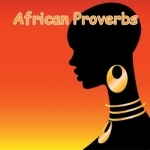
African Proverbs
Reference
App
Baganda * One who loves you, warns you. Ethiopian * Evil enters like a splinter and...
Hazel (1853 KP) rated Our Summer Together in Books
Sep 11, 2017
Second Chance at Love and Life
Review I received this book for free through Goodreads First Reads.
This latest book by women’s fiction author Fanny Blake is an uplifting story about family and finding love later in life. Our Summer Together begins with Caro, a portrait painter, and part-time art teacher, running around after her two adult daughters, Lauren and Amy. With barely a moment to herself, Caro flits between looking after her three-year-old grandson and helping out at Amy’s florist shop. However, one day, a brief encounter on the train home sparks excitement back into her life.
From the train to decorating her house and, finally, becoming her lodger, Caro gets to know the mysterious Damir as he gradually opens up about his past. Despite being fifteen years younger than her, Caro falls in love with the Bosnian and he with her, but can this elation last?
Despite her new chance at love, Caro has so many other things to worry about. Her ex-husband Chris is filing for divorce so that he can marry his new, much younger woman. However, this involves selling the house that Caro lives in and where her children grew up. On top of that, her eldest daughter, Lauren, is sceptical about Damir and is not afraid of saying so. With life as she knew it crashing down around her, Caro must decide whether Damir is worth it, but, most importantly, does he really want her in his life?
The title of the book, Our Summer Together, creates a sense of foreboding from the very beginning. Implying that Caro and Damir will only have one season together puts the reader on tenterhooks: what will go wrong? Desperate for a happy ending, we plough through the chapters wishing that their happiness could last forever.
It is refreshing to read about a romance developing between older characters rather than the typical twenty or thirty-something. A second chance at love feels much more satisfying than a will-they-won’t-they, playing hard-to-get attempt at a first serious relationship.
Alongside the love and joyfulness is a darker history that opens the readers’ eyes to events occurring during their lifetime that they may not have been very aware of. Growing up in Bosnia, Damir was subjected to war and violence, losing all his family and having a disastrous start at adulthood. For Damir, his relationship with Caro is not only a second-chance at love, but a second-chance at life, too.
Our Summer Together is a relaxing book to read that can either be devoured quickly or eked out over a period of time. With humour, reality and a range of emotions, it is impossible to find the story boring. Whatever your usual genre of choice, this book will be a refreshing change
This latest book by women’s fiction author Fanny Blake is an uplifting story about family and finding love later in life. Our Summer Together begins with Caro, a portrait painter, and part-time art teacher, running around after her two adult daughters, Lauren and Amy. With barely a moment to herself, Caro flits between looking after her three-year-old grandson and helping out at Amy’s florist shop. However, one day, a brief encounter on the train home sparks excitement back into her life.
From the train to decorating her house and, finally, becoming her lodger, Caro gets to know the mysterious Damir as he gradually opens up about his past. Despite being fifteen years younger than her, Caro falls in love with the Bosnian and he with her, but can this elation last?
Despite her new chance at love, Caro has so many other things to worry about. Her ex-husband Chris is filing for divorce so that he can marry his new, much younger woman. However, this involves selling the house that Caro lives in and where her children grew up. On top of that, her eldest daughter, Lauren, is sceptical about Damir and is not afraid of saying so. With life as she knew it crashing down around her, Caro must decide whether Damir is worth it, but, most importantly, does he really want her in his life?
The title of the book, Our Summer Together, creates a sense of foreboding from the very beginning. Implying that Caro and Damir will only have one season together puts the reader on tenterhooks: what will go wrong? Desperate for a happy ending, we plough through the chapters wishing that their happiness could last forever.
It is refreshing to read about a romance developing between older characters rather than the typical twenty or thirty-something. A second chance at love feels much more satisfying than a will-they-won’t-they, playing hard-to-get attempt at a first serious relationship.
Alongside the love and joyfulness is a darker history that opens the readers’ eyes to events occurring during their lifetime that they may not have been very aware of. Growing up in Bosnia, Damir was subjected to war and violence, losing all his family and having a disastrous start at adulthood. For Damir, his relationship with Caro is not only a second-chance at love, but a second-chance at life, too.
Our Summer Together is a relaxing book to read that can either be devoured quickly or eked out over a period of time. With humour, reality and a range of emotions, it is impossible to find the story boring. Whatever your usual genre of choice, this book will be a refreshing change
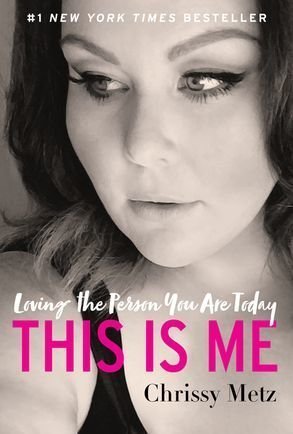
This Is Me: Loving the Person You Are Today
Book
An inspirational book about life and its lessons from the Golden Globe and Emmy nominated star of...
Celebrity Memoir Celebrity Humor Body Positivity Confidence
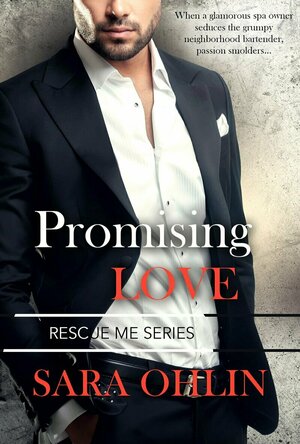
Promising Love (Rescue Me #3)
Book
When a glamorous spa owner seduces the grumpy neighborhood bartender, passion smolders… Ruby...
Contemporary Romance
